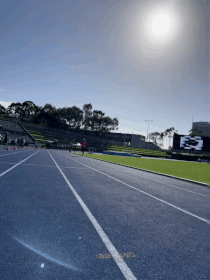I lied to myself, the 5k is not my favorite race
And an Expert Pro Run Coach vs ChatGPT AI: Who’s Better?
For this issue, I’m returning to the older newsletter style, which has more sections, bullets, and actionable tasks to help you be a better-running human. Here’s how this issue will go.
Hypothetical Theoretical - Introspective musings from a runner guy who thinks too much and sometimes comes up with pretty cool ways of framing up life and training.
Practical Tactical - Three things for you to do, think about or use that will better your run life.
I lied to myself, thinking the 5k race was my favorite race
Self-honesty was non-existent
The lie all started in 2018. I was struggling to figure out what race I should focus on. My kid was coming along, and I knew I needed to buckle down and focus on one race.
I have what I call endurance sport ADD. This is not a medical condition but more like something that I see many new and experienced runners and endurance athletes suffer from. They want to do it all. Ask most committed runners what their race schedule is for the year, and you’ll get, “Well, in one month, I’m doing a half marathon, then a 10k fun run, then an Ultra, then a marathon. But the marathon is my a-race, but yeah, I also want to do an Olympic distance triathlon because, you know… it’s summer 🙂 ”.
While it’s totally cool for anyone to do endurance sports until their heart’s content, if you want to run your best time at a certain race, you have to focus on one and be the most run fit you can be showing up to the race. You must devote the 6-12 weeks before the race to train specifically to invoke adaptations and handle race stress. This is why a good training plan has progressive overload and a variation of workouts that all come to a pointy head that resembles what you will face during the race. Simple in theory, much more complex in practice.
The Idea
Back to 2018, Daren. As the kid coming along was looming in the air, I ran my fastest 5k at that time and felt great at the finish (strava link * ). The training build was fun and it led me to the bright idea that the 5k was the best race to try to run 15:59 because sub 16 minutes sounded way cooler than running a 16:30 5k. For people keeping score at home, 16:30 would be 5% faster than my best time and a realistic goal. Taking off an additional 31 seconds is closer to 8%, which is absolutely psychotic, given I’m a highly trained and experienced runner going into my 40s. But I’m all about the challenge because… YOLO.
I reasoned that the 5k would allow me to focus all my energy on running short intervals in combination with long enough runs. I say long enough because, for the 5k, I didn’t need to run longer than 90 or even 75 minutes.
I wanted a race that was easy to run anywhere, I didn’t have to travel for it, and I wanted it to happen every Saturday. The Park Run ticks that box. A huge bonus is that there are flat Park Runs close enough to me, which would mimic the best course for running my fastest 5k race. This all makes sense theoretically in my brain.
But when you play this out in the real world, all those reasons were not enough to make me want to go through the hard sessions, slog through lifting heavy in between those hard run days, and deal with a kid that had sleep issues for the first eighteen months during this and suffer in this race.
Most runners look at the 5k as the gateway drug to the marathon. It’s only a quarter of a marathon, right? False. You run at and above your threshold for five kilometers/three miles. This race, if run correctly to your upper threshold limit, hurts. And it hurts a lot.
It hurt so much that I questioned why I was doing it while suffering in the middle of my last 5k race in May 2023 (* strava link). That race was two years after I had my best time. In the lactate fog of the last 5 minutes of the May 2023 race, I questioned if my fitness peaked as I sat between my 41st and 42nd cycle around the sun.
The 5k is a tough race, and I’m not really made for it
The 5000-metre or 5k race is wild. I’ve heard if the last 25% of a marathon is like running on hot coals, then the last mile (1.6km) is like having acid, maybe even of the lactate type thrown on you. It’s rough. The lactate buildup makes you question many things, and it wasn’t until my best 5k race, where I ran a 16:47, that I realized it was in the training. While some people might be suited for that burn and love it, I definitely don’t and needed to work my gluteus maximus off to be able to tolerate it.
But that race was in 2021, which, at the time of writing, is three years past. While it was tough, it was the first time I felt like I had control over the last third of the 5k. My training was what got me there.
I’m also getting older… so the question begs - do I still have it in me?
I tend to do things I’m kinda good
I’ve found that most things are only fun when it’s slightly challenging and also slightly easy. That middle ground. That fine line. How do you know when you touch the outer limits of too easy or too hard? Experience. Trial and error. It’s the only way.
Frequently, with runners that I coach, I take the conservative approach. It’s hard-wired into my DNA. Measure three times and cut once.
If you want to go places you haven’t gone and run times you haven’t, then you must do things you have never done before. Is the risk or downside of doing this thing worth it?
The 15:59 5K revisited
After careful consideration over the last 6-12 months of not focusing on racing, I can say that the 15:59 5k is still on my radar, and I’m about 90% sure I’ll do it. I want to execute it in a wholistically smart way that doesn’t burn me out and that makes my present-day self excited about the future outcome.
Without going into too much detail, it would like the below
I’ll most likely start off with a 6-8 week with sprint/plyometric/power/strength training and speed work block.
I’ll then transition that to more aerobic base work while maintaining the power and explosiveness from the previous block.
Then, transition to race-speed specific endurance-speed and longer intervals, slowly getting closer to the 5k pacing.
I aim to reach the low 17s again in Oct/Nov of this year.
Then, turn around and do it in April/May of next year on the road (2025).
Then, turn around and do it again in Oct/Nov of next year on the track (2025).
Three large macrocycles moving into age 43/44 should show me what I’m capable and not capable of while consulting with a coach.
I haven’t done it like this before, so it should prove to be either wrong or right. My gut says that I’ll respond well to this, and I will condense my race-specific block into a shorter 6-8 weeks.
Comfortable with being uncomfortable 2.0
The answer to the question of “How much uncomfortable stuff should we do?” is something that will never have an answer. It’s a moving target. Sometimes, you get very close, and sometimes, you’re very off. And the trick is being okay with all three states. Ironically, the moment you become comfortable with being uncomfortable is when you either have to be okay with it being too easy or you switch it up to make it challenging. Repeat that for the rest of your life. Or so I think that’s the answer.
What do you think? What angles did I miss?
1 - Expert Pro Run Coach vs ChatGPT AI: Who’s Better?
In the world of run training, the battle lines between old-school human coaching and high-tech AI guidance are drawn. While AI brings the big guns with its data-crunching skills, delivering precision and convenience, it can't quite replicate the human touch.
Coaches are likewise sheriffs in Western movies who read the room, adapt on the fly, and truly understand the emotional terrain. They tailor training to the oscillation of life—your feelings, your crazy schedule, and the things you don't even think to quantify.
So, in this digital age, what's a runner to do?
Should you join Team AI or stick with the experience and wisdom of a personalized training plan?
Go here to find out which is best for you and who wins this fun battle.
2 - Running more mileage is underrated, and I disagree with this
I love Coach Sage Canaday of Vo2MaxProductions, but I have to disagree with this video. His advice is too broad for some people with a specific genetic background.
I disagree because I think it depends on the person. After twelve years of aerobic base, I haven't seen significant gains beyond the first 4-5 years. Going from 60km per week (30 miles) to 110km per week (60-70 miles) didn't improve my 5k times by that much. It was diminishing returns, but maybe that is what happens?
I have a sprint background (200m-400m in college). The 800m is where I would fade, and I didn't have raw talent for the 1500m/mile event. If you have more slow-twitch muscles, aerobic base gains can help your half-marathon and marathon. Anything below half-marathon, I personally don't see it. Not many sprinters have gone as hard as I have at distance running and triathlons, so I’m sure the evidence is there, but it is hard to find a real-world sample population to back up my theory.
Shorter running improves my longer running, and longer runs over time usually burn me out. I think it's genetic. The advice from Sage Canaday gives bad examples to sprinters like me using their fast-twitch bodies for long distances.
I will push my aerobic base in the next few months and use low-z3 work and speed work/plyometrics to become more economical and springy. Let’s see how I go.
Watch the full video here, and feel free to let me know if I’m way off with this one.
3 - Notable Quotable
The idea is to Sprint downhill, don’t grind uphill
© James Clear
The idea is to sprint downhill, not grind uphill.
Look for situations where the energy is already flowing downhill. Invest in relationships where there is already mutual respect. Create products that tap into a desire people already have. Work on projects that play to your strengths.
And then, once the potential of the situation is already working for you, add fuel to the fire. Pour yourself into the craft. Act as if you have to outwork everyone else—even though the wind is at your back.
Bonus Cool Stuff That I Have Too Much Of
🏃🏽♂️Strava is finally using AI, will have dark mode and add ‘running when dark’ heat maps (women rejoice!) - Unsure about the AI being useful… maybe as it gets better?
🤥 Useful Not True - 99% of runner’s beliefs are false… but still useful
😎 Summer’s Coming - The definitive guide to sun exposure by evidence-based contrarian Mark Sisson
PS— If you ever wanted to do a deep dive into sports science, here is a 20-plus-hour master class. Start on episode 1. You’re welcome.







